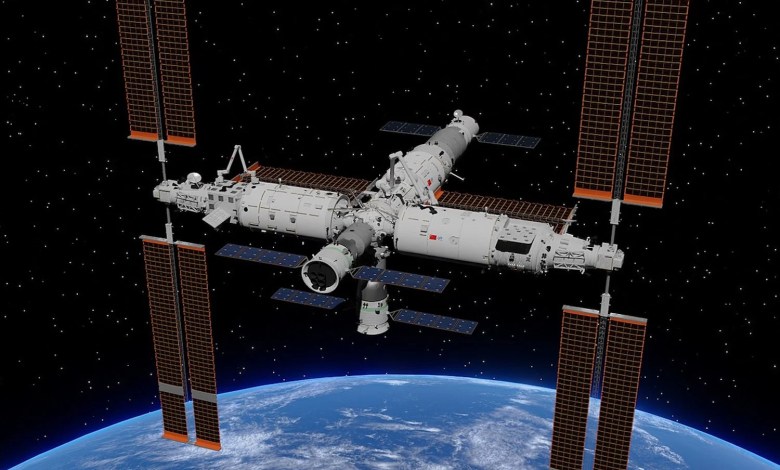Unidentified bacterial strains found in China’s space station

In October 2022, China launched the final module of its orbital space station. Since then, it has been not only the astronaut on the sky and ships – an unusual and previously unknown microorganism has also been occupying low-Earth orbit.
A group of scientists examined swabs collected from Tianhe Space Station, revealing a bacteria that didn’t know how to live on Earth. The findings were published in International Journal of Systems and Evolutionary Microbiology, It stressed the need to study newly identified microbial strains to protect the health of astronauts on the Chinese space station.
Previously unknown microorganisms, named Niallia Tiangongensis After discovering its space station, it has proven to be particularly resilient and survived the harsh microgravity conditions. Astronauts of the Holyoka University No. 15, part of a survey conducted by Microbiome, a residential area of China’s space station in May 2023, wiped a cabin at the space station in May 2023. Follow-up study of swab traces newly discovered microorganisms to strains that look similar Niallia Circulans-Rod-shaped spore-forming bacteria are initially isolated from the soil.
It is not clear whether the strain evolved in the space station or had evolved on Earth before taking a low-Earth orbit.
The newly described species can break down the nitrogen and carbon of gelatin, thus enduring harsh conditions by forming protective biofilms. It also packs its essential chemical reaction into hard spores, allowing it to survive in extreme environments.
Last year, scientists discovered mutant strains of drug-resistant bacteria that flourished under the harsh conditions of space on the International Space Station (ISS).
Although Niallia Tiangongensis According to the paper, its ISS counterparts are strains of space, which differ in composition and function.
It is not clear whether the bacteria poses a threat to Tiandong astronauts, but the discovery scientists suggest that further examination of the new strain is needed. “Understanding the characteristics of microorganisms in long-term space missions is critical to maintaining astronauts’ health and maintaining the function of the spacecraft,” the paper reads.



